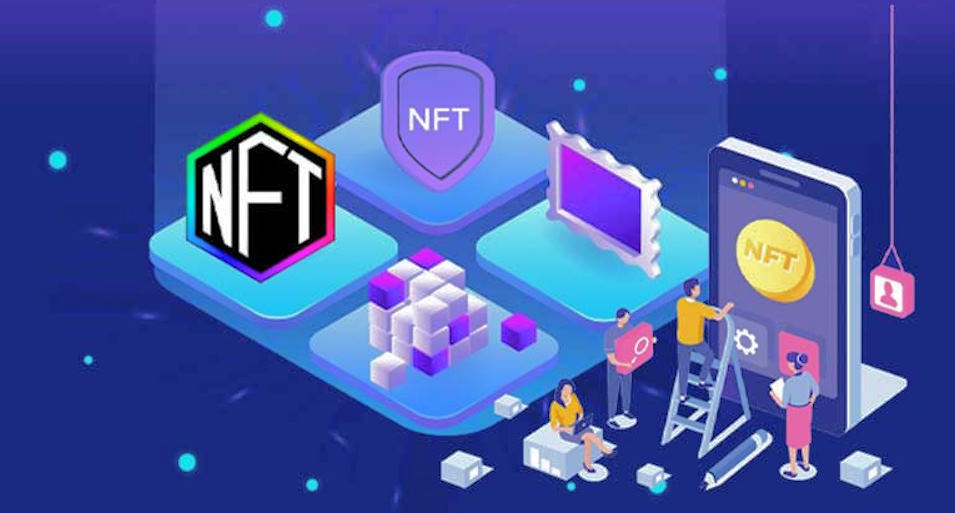
NFTs and Social Impact: How Blockchain is Empowering Change
— April 8, 2023As digital files that represent ownership of a distinct item, NFTs stand in stark contrast to traditional cryptocurrencies like Bitcoin or Ethereum, which are fungible and interchangeable. NFTs, on the other hand, signify ownership of unique digital or physical assets, such as artwork, collectibles, virtual real estate, and even real-world items like real estate and vintage cars. This uniqueness is rooted in the technology underpinning NFTs: blockchain. Blockchain’s decentralized and tamper-resistant nature ensures that each NFT’s provenance, ownership, and transaction history remain secure and verifiable, assuring buyers that they are engaging with legitimate and original creations. Moreover, this fusion of NFTs and blockchain technology has sparked a broader conversation about how this transformative duo can contribute to social impact initiatives, ushering in an era where creativity, authenticity, and positive change converge.
Blockchain’s Role in Social Impact
Advantages of blockchain technology in various sectors:
Blockchain technology’s impact on social change is underscored by its versatility across diverse sectors. Its decentralized and transparent nature offers a robust platform for addressing inefficiencies and fostering accountability. In financial inclusion, blockchain facilitates secure and cost-effective cross-border transactions, empowering the unbanked. In healthcare, it enhances data interoperability, ensuring accurate and accessible patient records. Additionally, supply chain management benefits from blockchain’s ability to track and verify the journey of products, reducing fraud and ensuring fair labor practices. By eliminating intermediaries, blockchain can revamp voting systems, promoting trust and inclusivity in democratic processes.
Transparency, traceability, and immutability as key features:
Transparency, traceability, and immutability are the cornerstones of blockchain’s potential for social impact. Transactions and data recorded on the blockchain are visible to all participants, reducing opacity and enabling stakeholders to monitor processes. The tamper-resistant nature of blockchain ensures that once data is recorded, it cannot be altered without consensus, fostering trust. This is pivotal in charitable endeavors, where donors can trace their contributions, ensuring accountability and encouraging more donations. Moreover, in supply chains, consumers can verify the ethical sourcing of products, encouraging responsible consumption.
Previous use cases of blockchain for social good:
Blockchain’s prowess in driving social impact has been demonstrated in various initiatives. For instance, in disaster relief, it enables transparent distribution of funds and resources, preventing misappropriation. Identity verification through blockchain aids refugees and marginalized populations in accessing essential services. Additionally, blockchain has been harnessed for land rights documentation, ensuring secure property ownership for vulnerable communities. These past successes underscore the potential of blockchain to revolutionize social impact by promoting transparency, inclusivity, and efficiency in a myriad of sectors.

NFTs Driving Social Change
Empowering Artists and Creators:
NFTs have emerged as a powerful tool for artists and creators, transforming the way they engage with their audiences and tackle long-standing issues. Direct artist-to-audience engagement is facilitated as creators can sell their work directly to their fans, eliminating intermediaries and enabling more meaningful connections. Moreover, NFTs offer a solution to copyright and provenance challenges by cryptographically verifying the origin and ownership of digital artworks. This empowers artists with greater control over their creations and protects their intellectual property rights.
Fundraising and Charitable Initiatives:
NFTs have ushered in a new era of fundraising and charitable efforts. They serve as a novel way to raise funds through crowdfunding and donations, where contributors receive unique digital items in return for their support. This mechanism not only incentivizes giving but also creates a sense of belonging within the community. NFTs also enhance transparency in charitable organizations by recording transactions on the blockchain, enabling donors to track how their contributions are utilized, thus building trust.

The Future Landscape
Evolving Trends in NFTs and Social Impact:
The intersection of NFTs and social impact is a dynamic space poised for significant growth. Evolving trends indicate a broader adoption of NFTs as tools for driving positive change. Artists and creators are likely to explore more interactive and immersive ways to engage audiences through their NFT offerings. Additionally, the integration of environmental consciousness into NFT marketplaces, with a focus on eco-friendly platforms, can mitigate concerns regarding energy consumption.
Potential Collaborations Between Blockchain Projects and NGOs:
As the potential of NFTs for social impact gains traction, collaborations between blockchain projects and non-governmental organizations (NGOs) are a logical step forward. Blockchain’s transparency and accountability align with the values of many NGOs, enabling them to showcase their initiatives and garner support. NGOs could tokenize impact achievements, creating NFTs that not only raise funds but also share stories of change. Conversely, blockchain projects can offer technical expertise to streamline the operational aspects of charitable organizations.
Speculation on the Long-term Influence of NFTs on Philanthropy and Change:
The long-term influence of NFTs on philanthropy appears promising. NFTs have the potential to democratize philanthropy by enabling small-scale donors to engage with causes they care about, creating a more inclusive giving landscape. The digitization and tokenization of impact could enhance accountability, encouraging NGOs to demonstrate tangible change. Moreover, NFTs might reshape the way we perceive ownership and connection to charitable causes, fostering a deeper sense of involvement in social and environmental issues.





